The future development of a country or region can often be determined by its technological innovation professionals. This year, the University of Macau (UM) Macao Base for Primary & Secondary STEM Education has been listed as a national science education base, reflecting the importance that China attaches to the cultivation of professionals in this area and the country’s recognition of UM’s work in science education. The university has been engaged in science education since the handover of Macao in 1999, and its Macao Base for Primary & Secondary STEM Education in recent years has served as a direct platform for local primary and secondary school students to acquire scientific knowledge and put the knowledge into practice, which can help cultivate the students’ interest in innovative technology from an early age. In line with the goal of the Master Plan of the Development of the Guangdong-Macao In-depth Cooperation Zone in Hengqin and Macao SAR’s second Five-Year Plan for Economic and Social Development (2021-2025) to promote the development of technological innovation and the hi-tech industry, UM will actively meet the needs of Macao and China for science and tech talent and will nurture more professionals to respond to the demand of the industry, so as to create better conditions for moderate economic diversification of Macao.
Offering Different Programmes to Promote Science Education
Led by UM Rector Yonghua Song, UM in 2018 established the Macao Base for Primary & Secondary STEM Education to leverage the resources of UM’s three state key laboratories and advanced research platforms, with the aim of supporting science education in local primary and secondary schools through collaborating with various sectors of the community. Via the base, the university provides continuous training for both teachers and students to fulfil its role as a platform for nurturing innovative professionals. The base has been included in the first batch of 2021-2025 national science education bases and UM became the first university in Macao to enter the list.
The base was established in collaboration with the Science and Technology Development Fund of Macao, the Education and Youth Development Bureau, the Macao Science Center, the Macao Post and Telecommunications Bureau, the Chinese Educators’ Association of Macau, and the Macau Catholic Schools Association. Gathering resources from the Faculty of Science and Technology (FST), the Institute of Chinese Medical Sciences, the Faculty of Health Sciences, the Institute of Applied Physics and Materials Engineering, and the Faculty of Education, the base has launched a series of science popularisation programmes via UM’s Centre for Science and Engineering Promotion, including summer camps, the On-The-Go Project, the ‘Liaison Professor to High School’ project, the International Workshop on Research Innovation and STEM Education for the Next Generation, STEM innovation workshops for primary and secondary school teachers, the BOC STEM Talent Challenge, as well as various field trips and science competitions. The activities are recognised by the local community and received a lot of positive feedback.
Tam Kam Weng, director of the Centre for Science and Engineering Promotion and professor in the Department of Electrical and Computer Engineering of the FST, has been elected an International STEM Ambassador of the Institute of Electrical and Electronic Engineers (IEEE), the world’s largest organisation in electrical and electronic technology. Prof Tam is the only scholar from Macao to have received this honour in 2022. He has carried out innovative STEM (science, technology, engineering, mathematics) educational research, activities, and services at national and international levels, as well as for secondary school students in Macao, since 2008. According to Prof Tam, the current achievements in STEM education would not be possible without the support of the local community and the collaborations with local primary and secondary schools.
Strengthening Students’ Scientific Literacy
Since the early days of Macao’s handover, members of UM’s faculty team have been engaging in science education in primary and secondary schools, with the aim of promoting economic diversification of Macao. According to Prof Tam, the development of science education in Macao can be traced back to as early as 2000, when the SAR government promulgated the Law of the Bases of Science and Technology, which clearly states that universities have the obligation to cooperate with the government on promoting science education, thus giving a greater sense of mission to the work of science education in universities. Prof Tam thanks Tong Chi Kin, then president of the Administrative Committee of Macao Science and Technology Development Fund (FDCT), for his support in the smooth implementation of STEM education at UM. ‘Thanks to the support of FDCT for the Potential Capacity Development Programme at UM, the results of secondary school students from Macao in international competitions have significantly increased in the past few years,’ says Prof Tam. ‘Most students who won awards in major competitions in the past few years have received training in the programme.’
Throughout the years, the science education team at UM has put a lot of effort in fostering a learning atmosphere for science education in local primary and secondary schools, with the base serving as a platform for nurturing future science and tech leaders of Macao. ‘Over 20 years ago, UM took the initiative to serve as a platform for science popularisation. Most of the secondary school students who participated in the first science summer camp organised by the FST are now leaders in the science and technology sector. Some of them have completed their PhDs and are teaching overseas, while others have set up their own tech companies in the Greater Bay Area,’ says Prof Tam.
To support the development of outstanding scientific and technological talent through fundamental education, the base provides support for primary and secondary schools to strengthen the scientific literacy of their students and encourages them to participate in international science competitions. Many outstanding students have achieved good results in these competitions on behalf of Macao. Lou Lan Heng, principal of the Affiliated School of the University of Macau, says that the science education team at UM has made many achievements in nurturing future science and tech leaders of Macao. According to her, two students from her school were selected to participate in the Intel ISEF competition in the United States and won the fourth prize, for which the Macao SAR government awarded a Certificate of Merit to the students.
Since 2015, the Affiliated School of the University of Macau has been collaborating with UM on STEM education. The university has provided a variety of training activities for teachers of the school to help them master new and advanced technology in science education. The university also built a platform for students to acquire scientific knowledge. ‘During the period of cooperation between our school and UM, our students have often won prizes in international and national science competitions, such as the iENA International Trade Fair in Nuremberg, the International Exhibition of Inventions of Geneva, the China Adolescents Science and Technology Innovation Contest, and the Soong Ching Ling Award for Children’s Invention,’ says Lou. ‘Our students would not have been able to perform as well as they did without the advanced facilities at UM and the experience shared by the professors.’
Fostering a Scientific and Innovative Mindset in Students
The Medium and Long-Term Planning for Non-Tertiary Education (2021-2030), announced by the Education and Youth Development Bureau in 2021, has established clear goals to strengthen students’ creativity and science education, so that students will be able to adapt to the social changes brought about by technological advancement. More specifically, the plan states that education institutions should cultivate intellectual curiosity and online information literacy in students, which will help them develop a creative mindset and computational thinking skills. Zheng Jiezhao, principal of Lou Hau High School, says that the school places an emphasis on the application of computer and internet resources, and has been encouraging its teachers and students to participate in activities related to technology and innovation in the past decade.
Since 2013, Lou Hau High School has partnered with UM to offer STEM training programmes for its students to enhance their ability to apply innovative technologies. ‘An innovative work is something that no one else has done before and this often involves relatively uncharted and advanced scientific knowledge. The team of professors at UM are well versed in both Chinese and Western perspectives and can provide guidance to our students to inspire them to be innovative,’ says Zheng.
‘Our students have established good relationships with professors at UM. When they graduate from high school, they can enrol in a relevant programme at the university and continue the research project they have been working on with UM professor, which will give them a better chance of success in the future,’ he adds.
Tailoring Training Programmes for Vocational Schools
In view of the differences in teaching facilities and technologies across local schools, the base supports them to develop unique education programmes in science and technology based on their characteristics, so as to meet the learning needs of different student groups and achieve the goal of science popularisation. Lam Kai Fai, principal of Bishop Luis Versiglia Memorial School, says that students of the school have encountered many difficulties in their studies as a result of their family problems. He thanks the science education team at UM for its help in enabling the school to better tailor its teaching programmes to the students’ needs, adding that the training programme has enhanced the students’ interest in electrical and mechanical engineering, as well as other professional knowledge, and has strengthened their hands-on skills. ‘These young people can change their future once they have mastered one of these skills,’ says Lam.
Lam wrote to Prof Tam in 2018 to seek the support of the university on the provision of vocational high school programmes. ‘Prof Tam not only provided professional advice and teaching resources for our curriculum, such as organising lab sessions at UM for our students to complement our teaching programme, but also approached local telecommunications companies to seek internship opportunities for our Form 6 students,’ says Lam. ‘This is the third year that our students have undertaken internships at telecommunications organisations in Macao. These hands-on experiences in technology during their school years will create more possibilities and opportunities for the students in their future development.’
Inspiring Students to Pursue Science Careers
The STEM training programmes and activities offered by UM not only allow secondary school students to explore their strengths and interests in science, but also help them plan for their future studies. Mok Man Wai is the secondary academic director (mathematics and science) of Sacred Heart Canossian College (English Section). According to her, the school has been encouraging students to participate in STEM training programmes offered by UM to make good use of their extra-curricular time to learn about science outside the classroom since 2015. For example, during a science camp held at UM last summer, students of the school were exposed to basic theories in research areas such as microelectronics and dementia. ‘It is important to provide opportunities for students to broaden their horizons, develop new ideas, and enhance scientific literacy, so that they will be able to find a more suitable path for themselves when it is time to choose a subject for further study,’ says Mok.
Graduated from Sacred Heart Canossian College (English Section) and now studying astronomy, physics and mathematics at the University of Toronto in Canada, Lou Wan Ian was selected to join a team supervised by UM professors through the Science and Technology Development Fund’s Potential Capacity Development Programme during her high school years. She represented Macao in the IEEE Mega-Challenge 2017: Smart Cities Competition at the IEEE RFID 2017 Conference in the United States and won the championship. Lou is grateful to Mok, her class teacher at the time, who encouraged her to participate in STEM training, and to her mentor Prof Tam for helping her make breakthroughs in the process, so that she can realise her dream to improve people’s lives with technological innovation. ‘Through the STEM training, I received the opportunity to participate in overseas competitions and see the advanced technologies around the world,’ says Lou. ‘The experiences have changed my view of science and made me more aware of my ideals and ambitions.’
Promoting Sino-Portuguese Cooperation in Science Education
The base and Ciência Viva, Portugal’s national agency for the promotion of science, technology, and culture, signed a framework agreement on cooperation in STEM education in 2019. The agreement took advantage of the role of Macao as a platform between China and Portuguese-speaking countries and helped establish a Sino-Portuguese platform for science education. Since 2020, the base has offered courses for the Macau Portuguese School under a STEM training programme. Andreia Maria Cerejo Ramos, a teacher at the school, says that students can develop interdisciplinary skills through the training programme. For example, the programme integrates environmental education into the R&D process of science and technology, which allows students to solve scientific problems and put their knowledge into practice.
According to Ramos, the objective of this training is to provide students with an understanding of the impact of atmospheric pollution on people and the environment. Students can enhance their scientific literacy by creating devices to measure different pollutants in the atmosphere in real time. Paulo Eduardo Reis Felgueiras, another teacher at the Macau Portuguese School, says that the air measurement devices involves the use of programming languages. To help students learn programming, the base not only shares its teaching resources, but also assigns its teachers to the school to teach. They include Miguel Gomes Da Costa, a senior instructor at the FST, who has been teaching the Python programming language to students of the Portuguese school. ‘Miguel and I teaches Python from different perspectives. He not only teaches the language, but also shares his views as a university teacher,’ says Felgueiras.
Strengthening Ties with Science Education Platforms in Mainland China
Over the years, the science education team at UM has been committed to nurturing future science and technology professionals for Macao. To achieve this goal, the team has been systematically pooling efforts to support primary and secondary schools in creating a science-oriented learning atmosphere via the base. In line with the goal of the Master Plan of the Development of the Guangdong-Macao In-depth Cooperation Zone in Hengqin and Macao SAR’s second Five-Year Plan for Economic and Social Development (2021-2025) to promote the development of technological innovation and the hi-tech industry, UM will create and open up more quality science and technology resources and will continue to play a significant role in science education, in order to nurture more tech professionals for Macao and create better conditions for their upward mobility, so that they will become future leaders in the industry.
According to Prof Tam, the base’s positioning and layout will be further enhanced now that it is listed as a national science education base. ‘We will make good use of our strengths and take advantage of Macao’s role as a Sino-Portuguese science education platform to organise more international exchange activities. At the same time, we will strengthen our ties with science education platforms in mainland China and will work with them to promote cooperation and exchange in STEM education in the Guangdong-Hong Kong-Macao Greater Bay Area,’ says Prof Tam. ‘Upon this basis, we will be able to nurture more technological innovation professionals to meet the future demands of Macao, the Greater Bay Area, and China.’
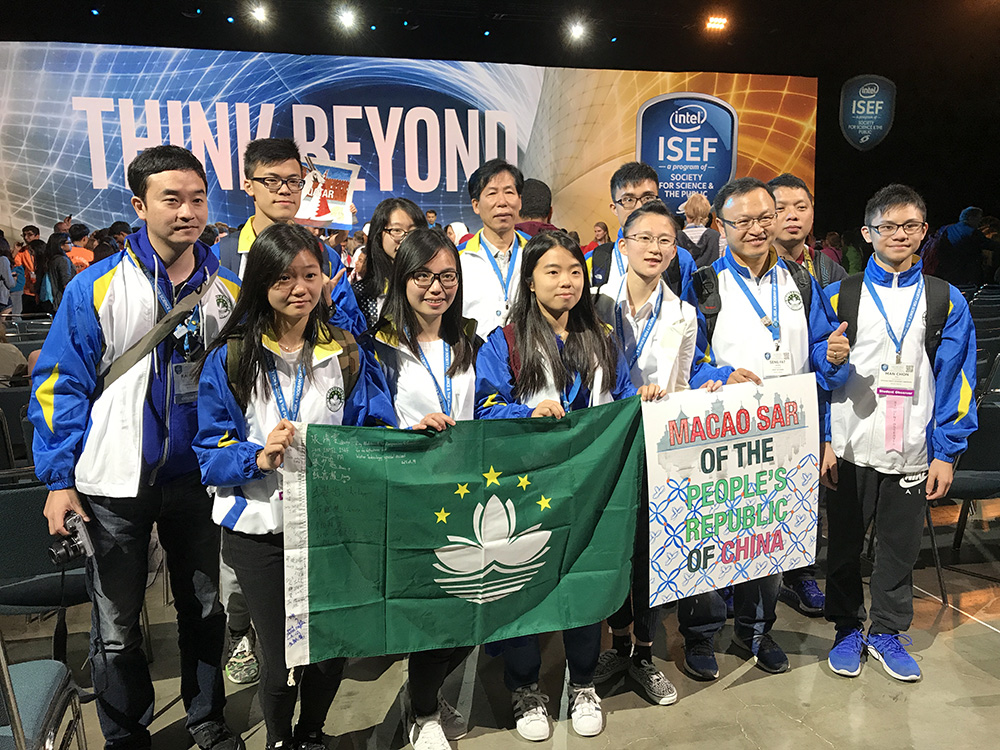
Lou Wan Ian (first row, third from right) represented Macao and won the championship in the IEEE Mega-Challenge 2017: Smart Cities Competition at the IEEE RFID 2017 Conference
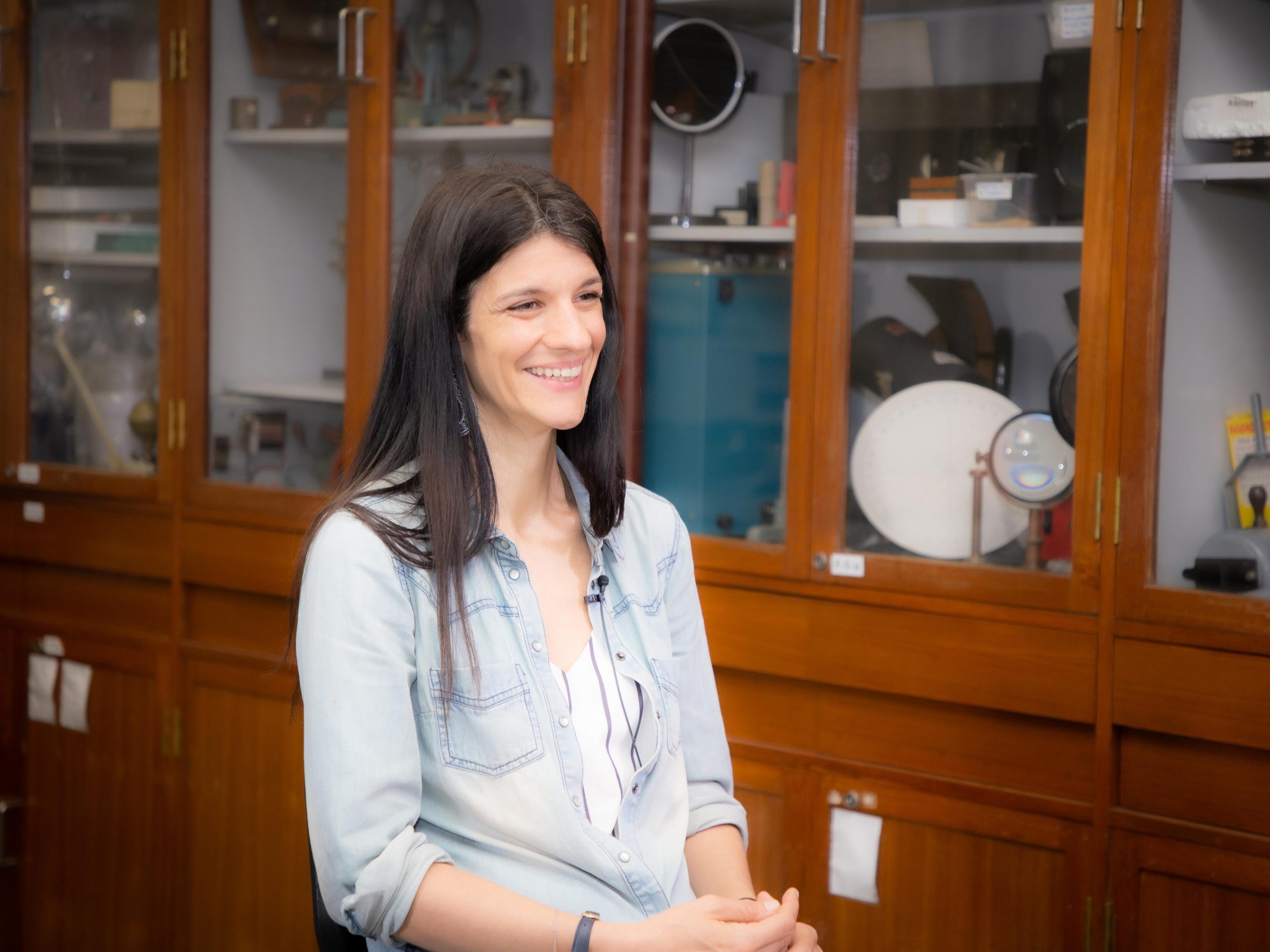
Macau Portuguese School teacher Andreia Maria Cerejo Ramos
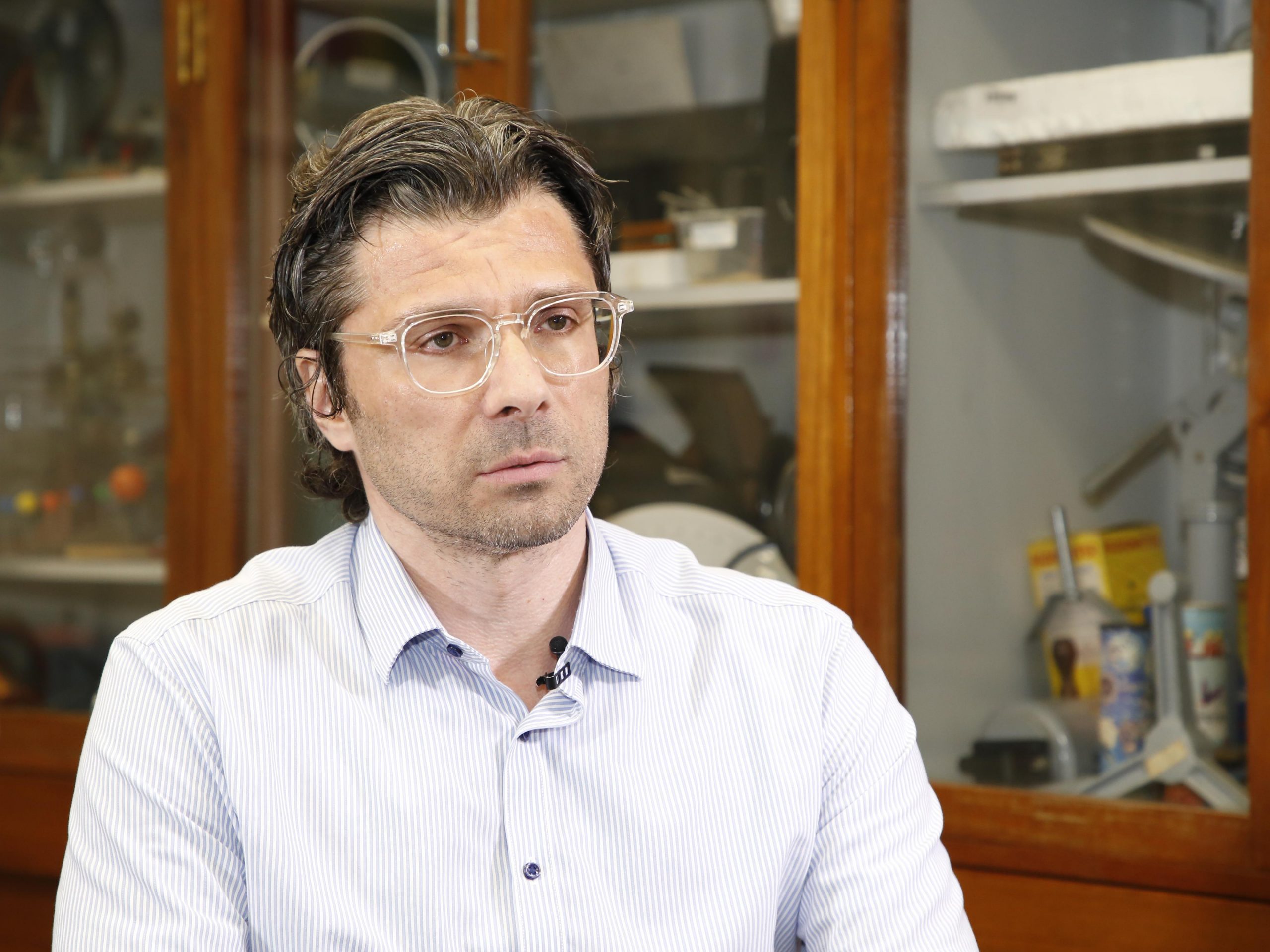
Macau Portuguese School teacher Paulo Eduardo Reis Felgueiras
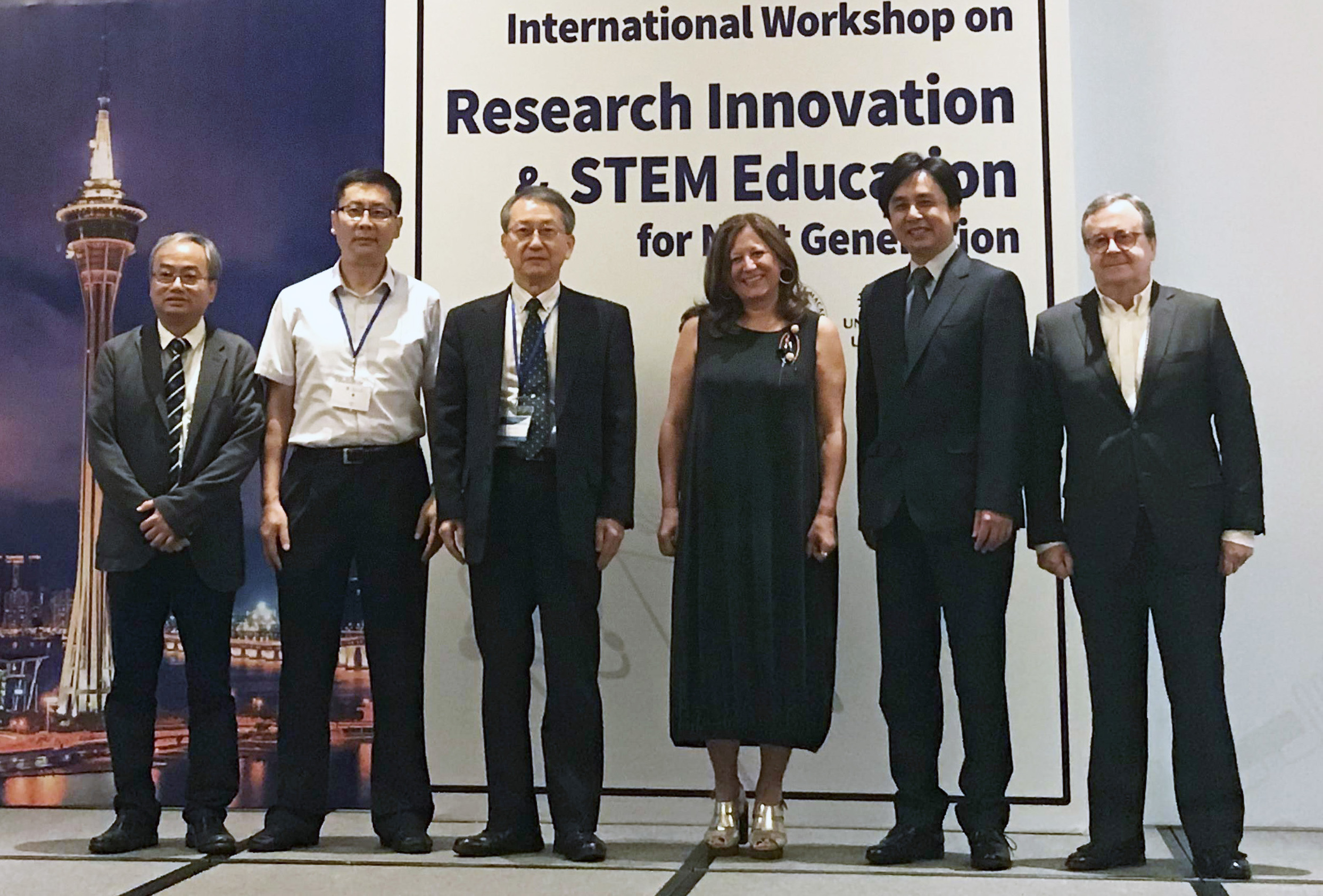
M holds the International Workshop on Research Innovation and STEM Education for the Next Generation
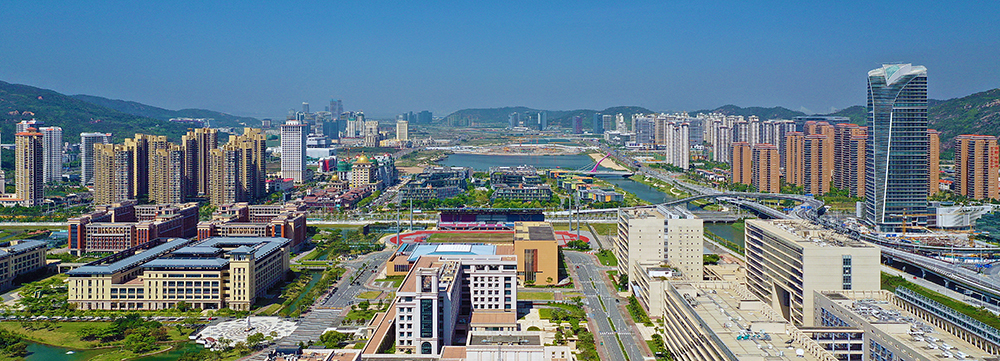
UM will make use of its strengths to promote cooperation in STEM education in the Greater Bay Area
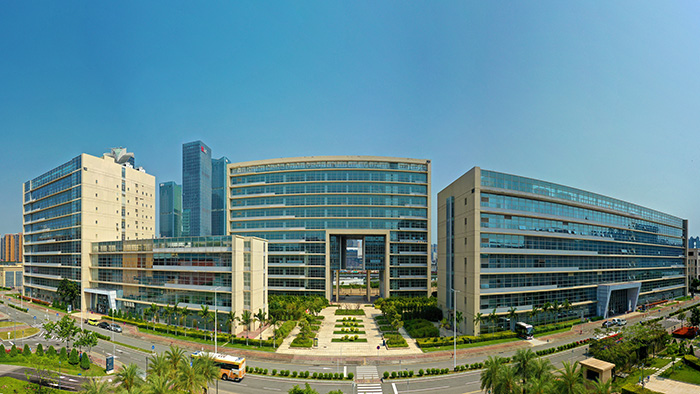
The base will take advantage of UM’s three state key labs and advanced research platforms to support science education in local primary and secondary schools
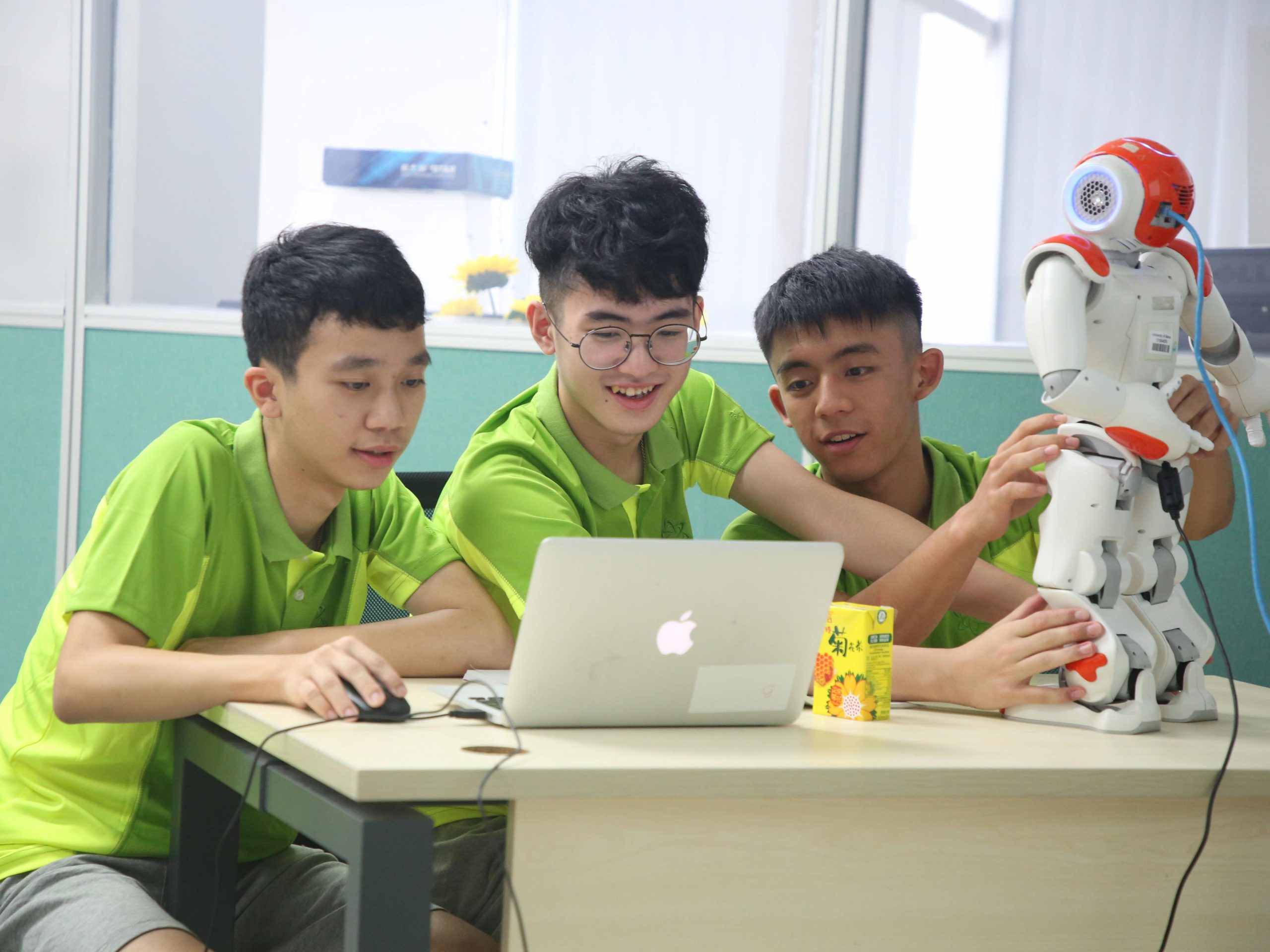
Students receive training at the STEM Education Base
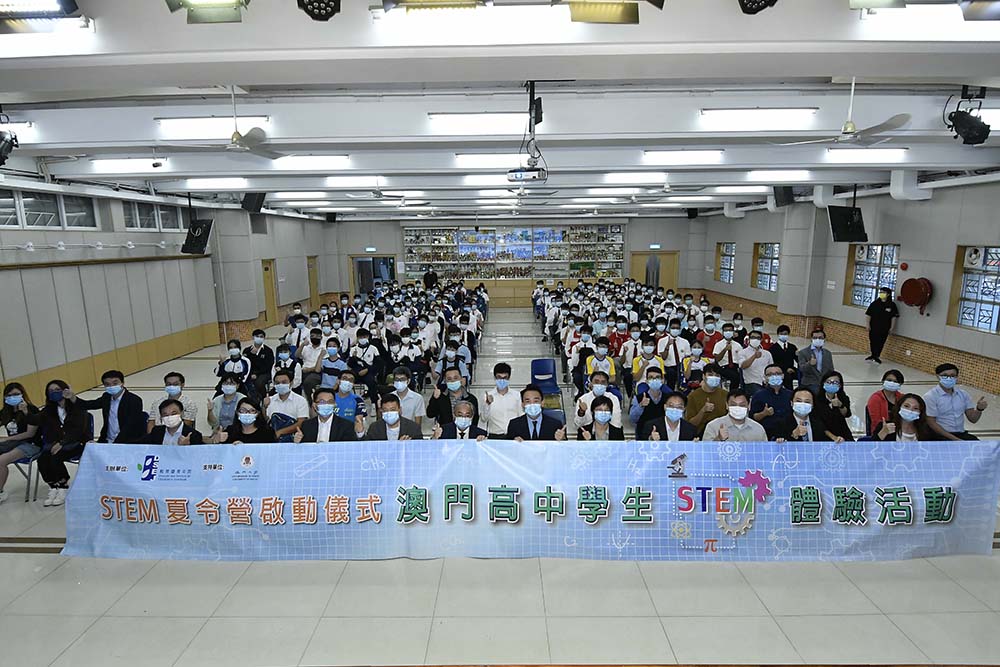
UM promotes STEM education in local schools
